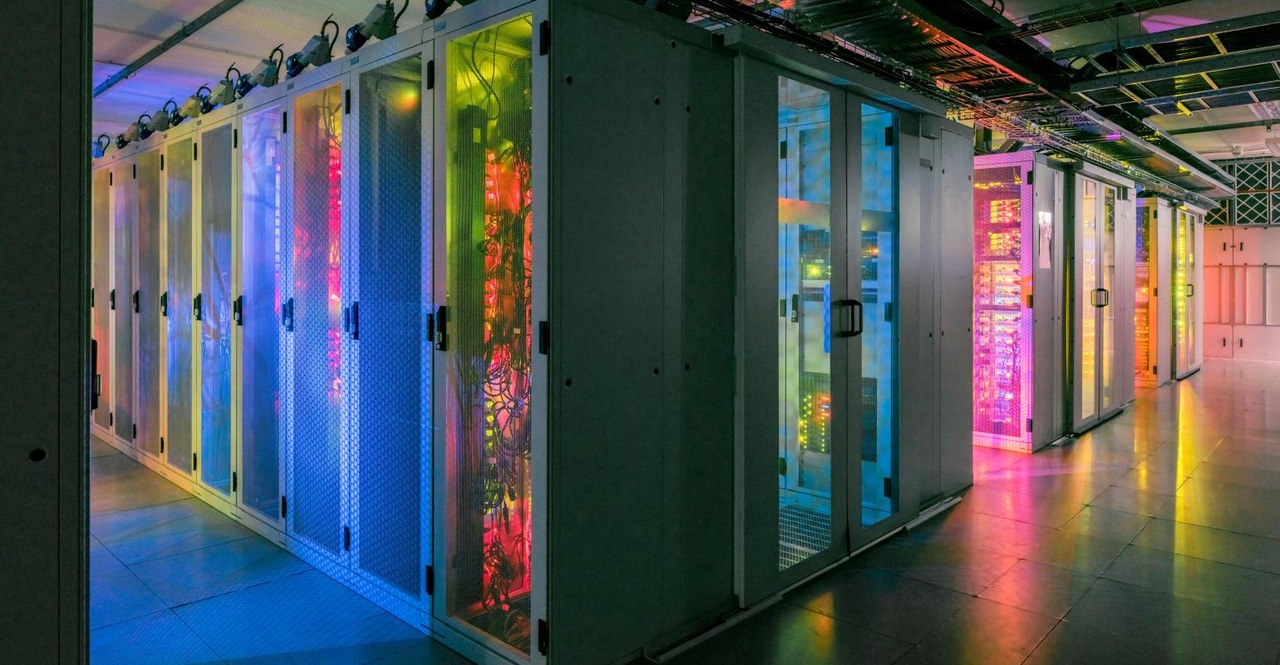Data Center Pro Reflects on Becoming ‘Better Neighbors to Our Communities’Data Center Pro Reflects on Becoming ‘Better Neighbors to Our Communities’
Ron Vokoun shares his answers to AFCOM's "Five Data Points" interview series.
January 20, 2023

Editor’s Note: Data center member organization AFCOM interviewed Ron Vokoun, Director of Critical Facilities at OAC Services, on the data center industry and its impact on the world. Ron is a member of AFCOM’s Data Center Institute (DCI) and has more than 30 years of experience in the data center construction industry. He specializes in digital infrastructure and in scalable, energy efficient, water-conscious, and sustainable data center solutions.

Ron Vokoun, Director of Critical Facilities at OAC Services
AFCOM: This past year, what has been the greatest challenge you’ve had to face within the data center industry? How have you overcome it?
Ron Vokoun: Staffing has definitely been my greatest challenge, and I can’t necessarily say that I’ve overcome it either, unfortunately. I’m focused on data center construction and there was a talent shortage in both the data center and construction industries before the pandemic. And then, of course, the pandemic exacerbated it in both cases. As an example, in April, I interviewed five candidates over a week and a half. And within 24 hours of interviewing each of them, all of them came back to us to say that they’d accepted other offers. It really is just a tough market right now.
I think with a lot of competition, a lot of challenges, and just not enough people, you really have to act as fast as you can when you get a good resume, interview them as quickly as possible and be able to be ready to extend an offer very shortly after the interview. It reminds me a bit of the crazy housing market where people were making offers on houses while they were still in the driveway. It’s very similar to this crazy market. So, if you find people, act fast.
AFCOM: How do your data centers interact or give back to their local environments or communities? How do you hope to give back in the future?
Vokoun: While we’re not a data center operator, the data centers we do work on tend to be really good neighbors. We see them do everything from raise money for charities to gathering food donations, and even the construction companies have competitions where they build things out of cans of food.
Something I’d like to see the industry do more of in the future is to employ more technologies to help stabilize the grid. In places like California and throughout the Southwest where there’s brownouts, there’s absolutely microgrids and other technologies that we can employ that will help us help our community. And, of course, I think we can also just continue to educate the community about all of the good things that we already do as an industry.
AFCOM: If you could build a data center anywhere in the world, where would it be and why?
Vokoun: I’m a complete data center tourist—I will tour any data center anywhere, good or bad, because I think you can learn from all of them. I was fortunate enough to spend a year in Tokyo where we turned a seven-story parking garage into a data center back in 2001, which was so much fun. What a unique experience to be immersed in the culture and work culture of another country. So, another experience like that would certainly be fun.
I also think it’d be fun to build one in Iceland. It’s a unique location, and from a sustainability standpoint, the use of geothermal energy there is an ongoing great story for data centers. Finally, I think it’d be fun to build something close to where I grew up in South Central Nebraska. Funnily enough, the farm that my mom grew up on in Nebraska now has a bitcoin mining data center on it right now. It was a very unique turn of events.
AFCOM: What recent data center trends have made you the most excited or enthusiastic?
Vokoun: One of the interesting things to watch is to see how liquid cooling evolves. It’s here, it’s proven, but there’s so many unique versions (such as immersion cooling) that it’ll be interesting to see which version gains broader acceptance. Or, who knows, maybe it’ll continue to be by committee.
Watching the edge grow is going to be a lot of fun as well. It already has grown, but everyone’s edge is different, which means there’s not going to be a one-size-fits-all solution and it’s not all centered around one location. The edge should then be a great enabler of new technologies that simply weren’t there before.
The thing that I’m most excited about, however, and I’m going to keep beating the drum on this, is small modular nuclear reactors. We need more carbon-free power, and while a lot of people could argue that it’s certainly not sustainable with the toxic waste it produces, if we don’t stop producing so much carbon, we’re not going to be around in 1,000 years to worry about the half-life of these radioactive materials. I think that these nuclear reactors have the potential to implement carbon-free power on a greater scale and closer to where it’s needed, which helps eliminate some of the inefficiencies of the grid.
AFCOM: What do you personally hope to accomplish in the next decade? What do you hope the data center industry as a whole is able to accomplish in the next decade?
Vokoun: I’d like to be on a beach in the next decade. [Laughs.]
But honestly, from a personal standpoint, as I’ve gotten a little further in my career, I’ve spent the last few years focused on mentoring our own team members and talking with those entering the industry or people who are getting out of the military and helping them get involved with data centers. You know, if I can play a small part in helping improve the talent shortage in the industry and help people improve their lives by making a better living through joining this amazing industry of ours, then I’ll feel very fulfilled.
As for the industry, I’d like to see us become better neighbors for our communities. We need to educate more people on all the good that we already do and stress that data centers aren’t evil. It’s amazing how many people don’t really know where Netflix is coming from, and that if you want all these cool movies coming to your phone with almost zero latency, there’s going to have to be data centers. So, we need to do a better job of educating the public on all the great things that we can do for them.
About the Author
You May Also Like









